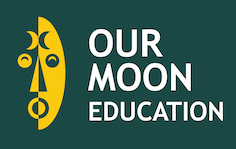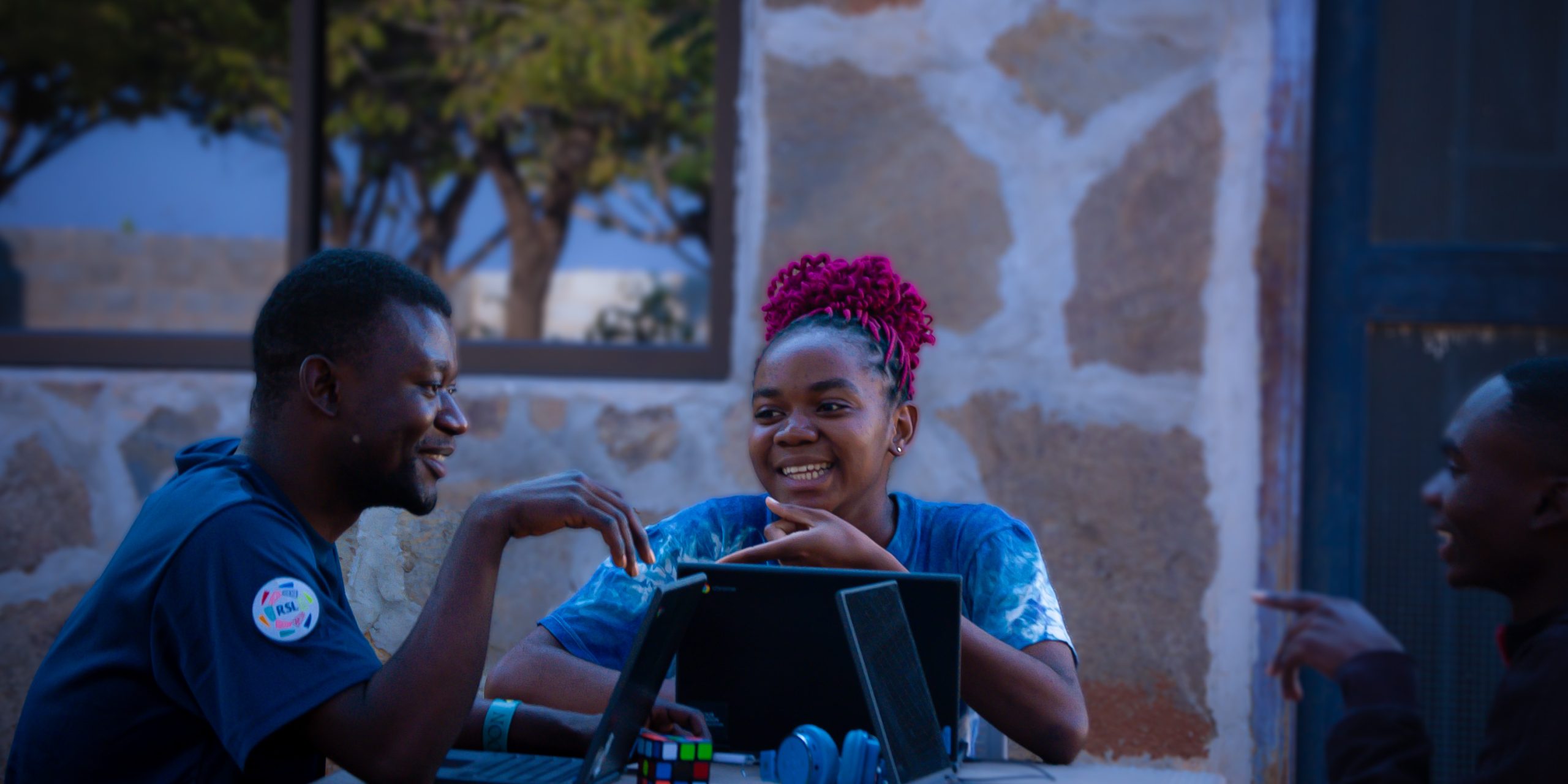In this blog, Malama talks to Namwayi who has just completed her research into how Zambia could potentially use GM crops to help combat the effects of climate change and a growing population in Zambia to reduce famine.
Malama: In a blog we did on you, you mentioned that you’re “Driven by the will to create change…” in your “community and country.”, what sparked the will?
Namwayi: Living in a developing country where many people struggle to access basic needs, especially proper nutrition and healthcare, has deeply affected me. The high rates of malnutrition in my country, Zambia, with more than 40% of children under the age of five suffering from mineral and vitamin deficiencies, demands an urgent need to solve this pressing issue.
The thought of children not having a fair chance to grow and develop to their full potential was something I couldn’t ignore. This realization has motivated me to use scientific advancements to help in the provision of a secure food system to not only secure hunger crises for all but also to provide a nurturing and safe environment for children.
Additionally, the growing Zambian population and worsening food insecurity have motivated me to contribute to change in how agriculture can be revolutionized to not only produce crops for the hungry population but also provide jobs and income for farmers.
My own upbringing in a supportive household has also played a pivotal role in shaping my aspiration for change. This is because I understand that I am a happy youth now because I have grown up with a supportive family that is always looking out for me. I want other children to have that feeling too.
Malama: You said you’re inspired by other people’s “stories of success through determination and hard work despite coming from humble backgrounds.”. What success story is currently keeping you fired up; and eager to pursue change in your community and country?
Namwayi: The story of the late Kenyan Professor Calestus Juma keeps me fired to create change. His rise from humble origins in a remote Kenyan village to an internationally recognized Harvard scholar, science writer and public intellectual always inspires me.
Growing up in a vulnerable yet supportive environment, he adopted the spirit of innovation from his father, a skilled carpenter, and his mother, an entrepreneur. Enduring the hardships brought about by floods that led to food shortages in Kenya during his years, he became interested in technology, the environment, and agriculture.
What particularly motivates me is his unwavering perseverance, utilizing his love for technology and science to earn money for his education. At the age of 12, he began fixing broken radios and record players. When his family was unable to afford the cost of further education, Juma worked as a science elementary school teacher in faraway Mombasa.
Seeing how Juma didn’t let his humble beginnings hold him back pushes me to keep going, even when things get tough. Juma’s resilience and positive attitude, despite all the difficulties he faced, encourage me to stay focused on my goals, even when things seem hard. His story reinforces my belief that, with hard work and a hopeful mindset, I can make a difference not just for myself, but for those around me as well.
Malama: In your words, based on the “Various cases involving the violation of children’s freedom of expression especially in schools…” that you’ve witnessed, what’s one case that undoubtedly caught your attention and fueled your passion to want to educate and advocate for children’s rights?
Namwayi: Although I’ve never really had an experience with a violation of rights myself, an experience one of my club members shared with the group really fueled my passion. Two male teachers barged into their pageant event without permission. This was a clear example of children’s freedom being violated. The students felt uncomfortable and vulnerable because they were not expecting any male teachers to show up, especially since they were dressed in a way they wouldn’t normally dress around male teachers.
When the students reported the incident, the school blamed them for disrespect instead of addressing their concerns. This shows that sometimes, students’ voices are not heard or taken seriously in schools, especially because there’s a difference in power between teachers and students. This kind of situation highlights the need for schools to create a safe and respectful environment where students’ rights and feelings are valued and respected. It’s essential for students to feel comfortable and secure in expressing themselves without the fear of being dismissed or ignored.
Malama: How have you been working towards achieving that change?
Namwayi: During my time in high school, I became part of the Children’s Rights Club, a platform that empowered us to speak up and be heard by the school administration. As a united group, we created visual aids like charts that highlighted the various ways children’s rights were being violated, especially when it came to the freedom to express ourselves. We also set up a suggestion box where students could freely share their concerns or ideas on how to improve the school.

Currently, I am committed to bridging my passion for safeguarding children’s rights with my love for science. My goal is to contribute towards creating a world where children can thrive in a safe and nurturing environment, enabling them to blossom and reach their full potential. Through this journey, I aspire to advocate for the well-being and rights of every child, ensuring that their voices are not just heard but valued and respected in every sphere of life.
In the case of food insecurity, I wish to contribute to research initiatives on how GM crops can be best implemented in Zambian Agriculture without affecting humans or the environment. This will involve carefully assessing all risks of these products. I also want to engage in educational campaigns that will focus on ensuring that all farmers are well-oriented on how these crops can be used effectively. This step will help provide crops that are able to adapt to our changing climate and address the issue of food insecurity and malnutrition.
Malama: You mentioned that the increase of people suffering from diabetes and high blood pressure affects you; how is it affecting you?
Namwayi: Growing up with a mother dealing with diabetes and high blood pressure has deeply influenced me. This is because I have noticed how I have been indirectly affected by the increased healthcare costs associated with managing diabetes. The need for regular check-ups, medications, and potential complications has resulted in a considerable financial burden.
Additionally, the change in dietary needs is also a strain as most of the foods are expensive. This experience has inspired my mission to use my love for science and technology to support others facing these health battles in our community.
At first, I thought these health issues were linked to Genetically Modified Organisms (GMOs). However, my research essay revealed that Zambia actually prohibits the use of GMOs. Instead, I learned that the rise of diabetes and high blood pressure in our country is mainly due to inactive lifestyles and unhealthy eating habits.
This discovery also motivates me to figure out how to use my interests to advise people to make informed decisions that prioritize their well-being and happiness. This is because I understand that preventing these diseases is better than the costs – financial and personal health – associated with living with them.
Malama: Have you researched on “… the positive and negative effects of GMOs generally on human health and the environment.”? What have you discovered so far?
Namwayi: Through my research essay, I have analysed both the positive and negative impacts of GMOs in order to come up with a balanced opinion on the topic. I discovered that GM crops have the possibility to revolutionize agriculture by providing crops that produce more yields and are more resistant to pests and harsh environmental conditions.
However, I’ve also learned that GMOs might sometimes cause unexpected allergic reactions or other health issues in some people. Besides, their impact on local ecosystems and wildlife is a concern, as they could potentially disrupt the balance of our natural environment.
Finding the right balance between the benefits and potential risks of GMOs is crucial. That’s why I believe in the importance of having clear rules and proper checks in place to make sure that GMOs are used safely and responsibly. My aim is to promote a thoughtful and informed approach to embracing scientific advancements while safeguarding both our health and the well-being of our planet.
Malama: What’s your message to our supporters and students who hope to apply to our program?
Namwayi: I encourage all prospective students to apply and take this chance to dive into a world of new experiences. Meeting and working with people from diverse backgrounds will teach you the beauty of diversity and the value of teamwork. The various activities and opportunities here will not only shape your academic journey but also inspire personal growth and development.
I encourage you to take this decision with an open mind and a willingness to learn and grow. The challenges and triumphs you’ll encounter here will instil in you valuable life lessons and skills.


